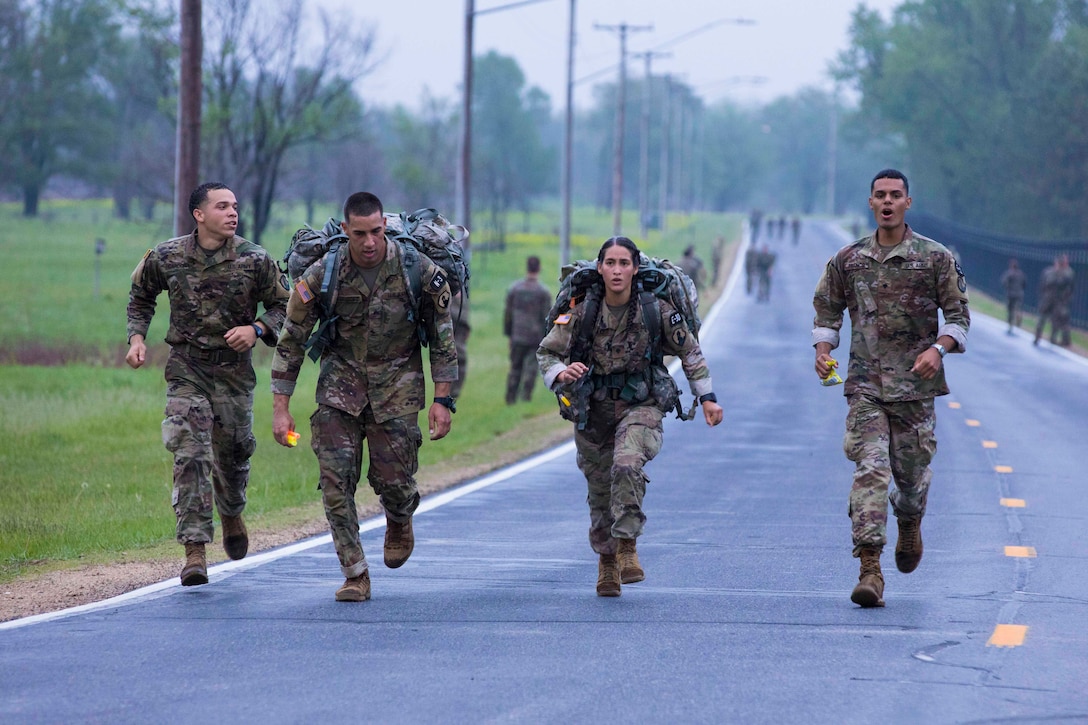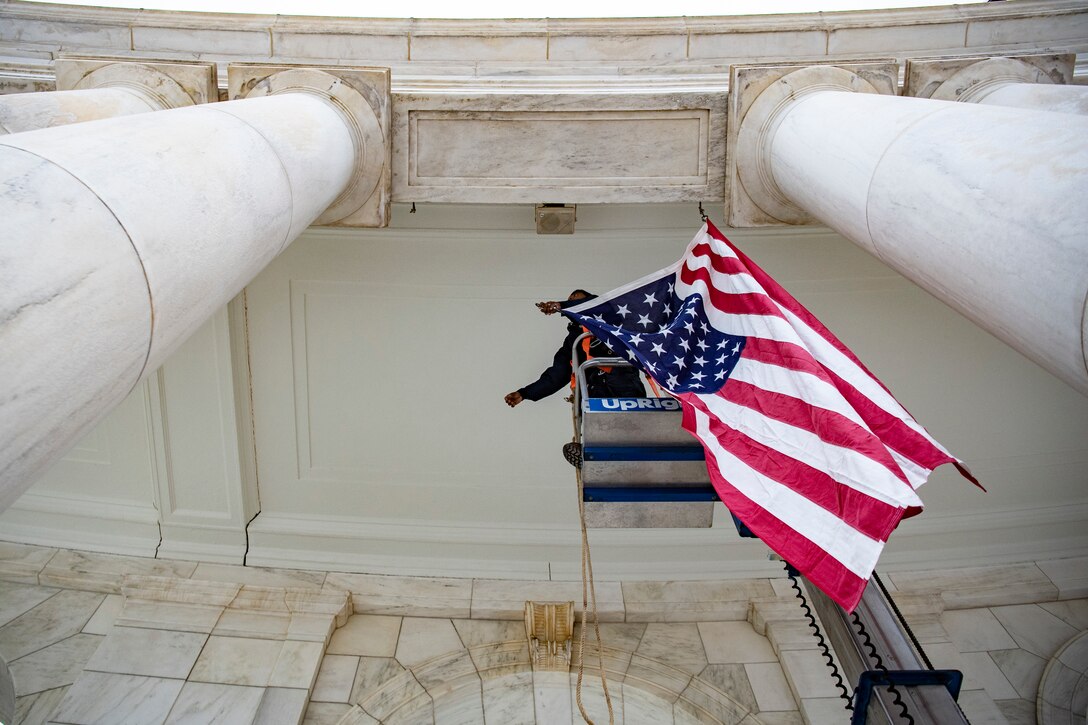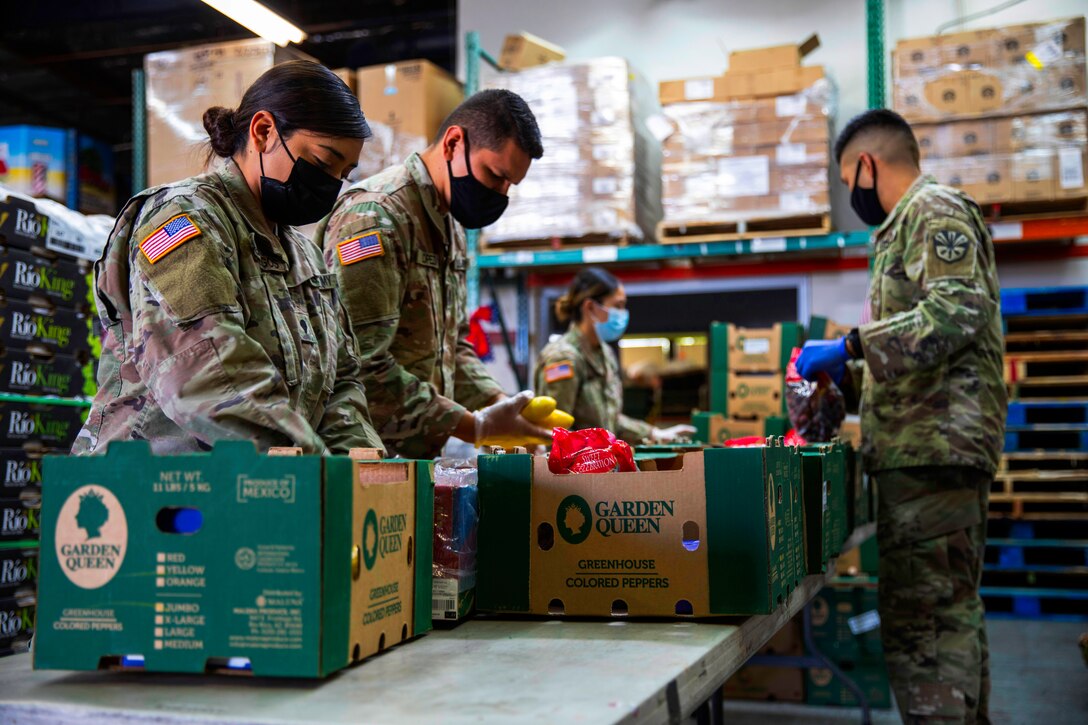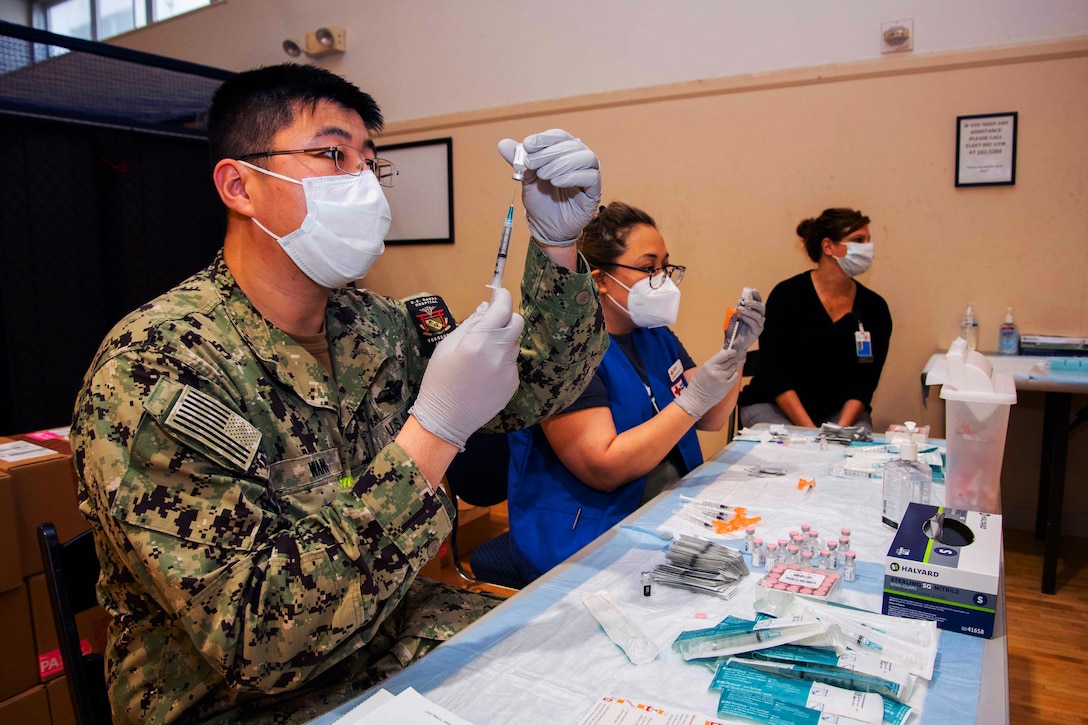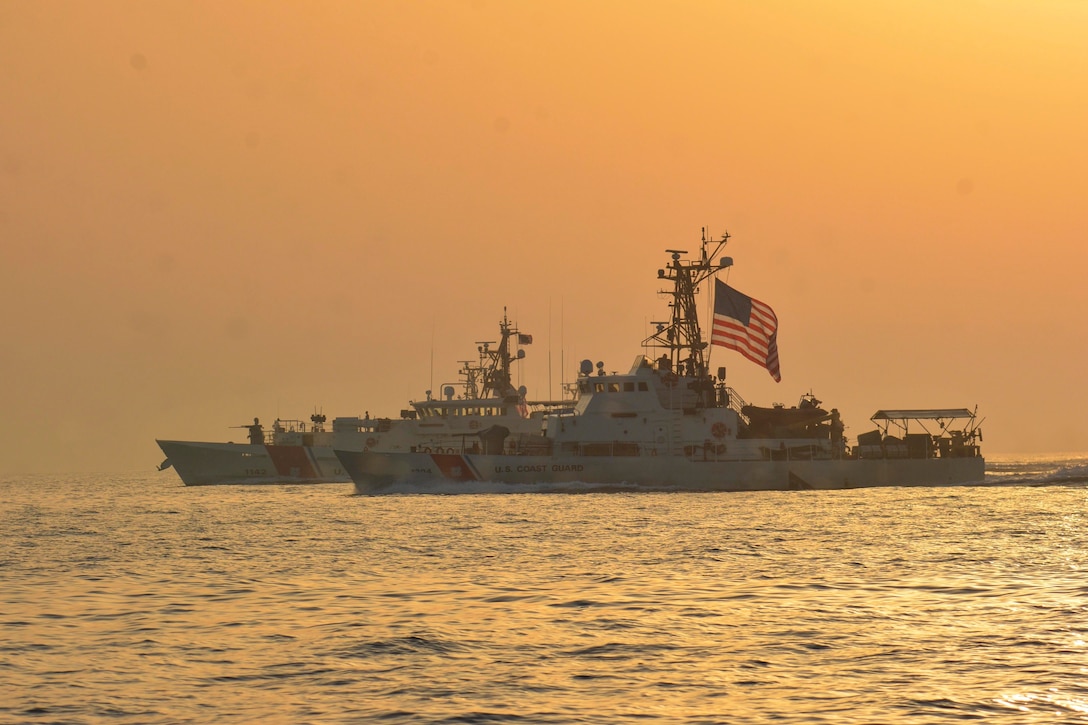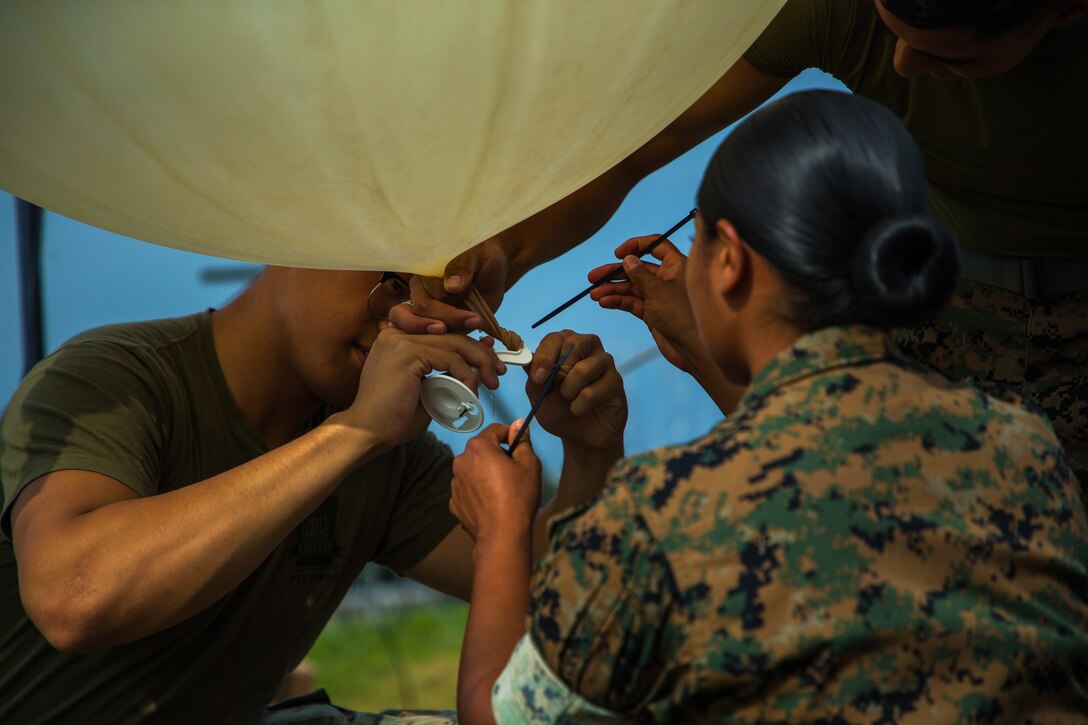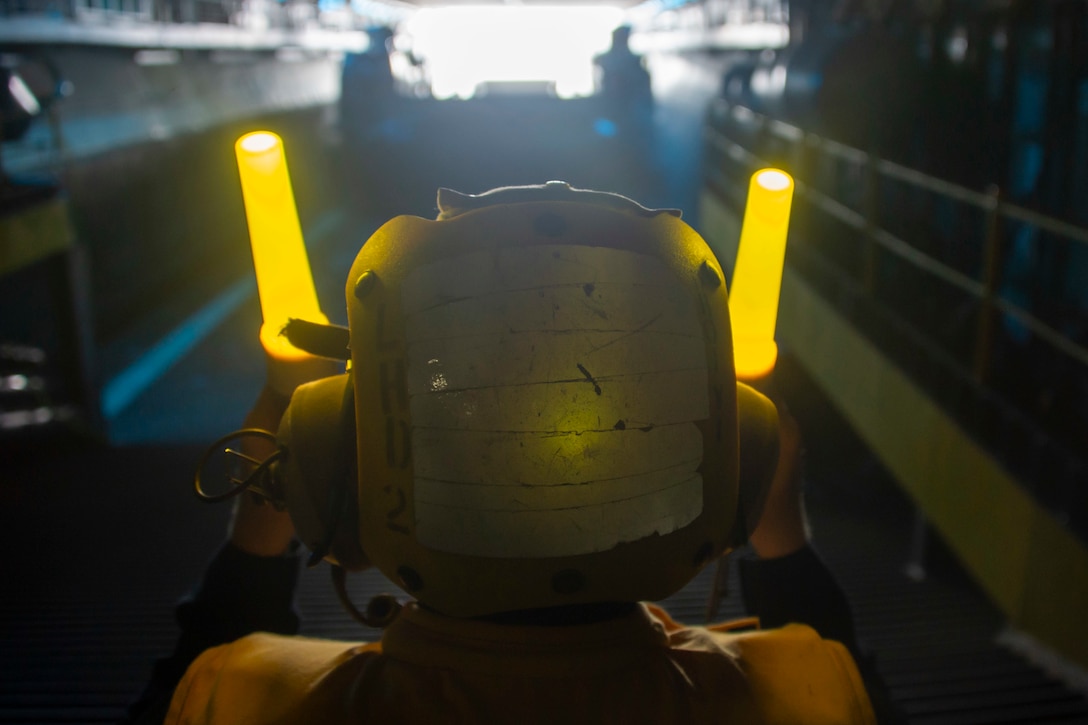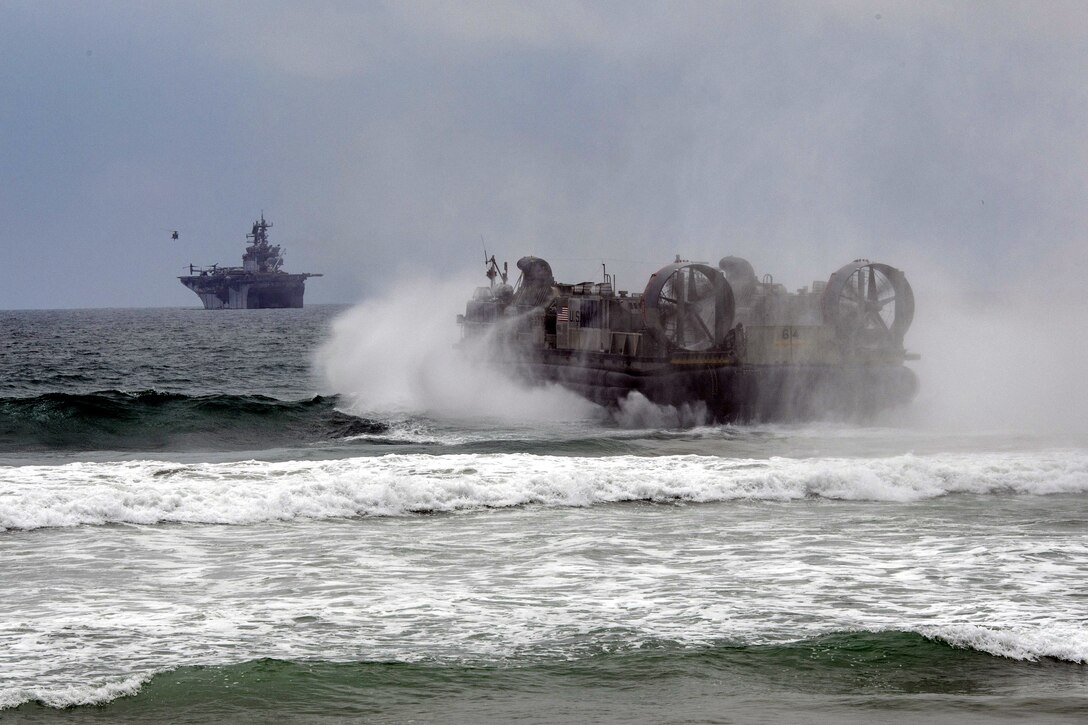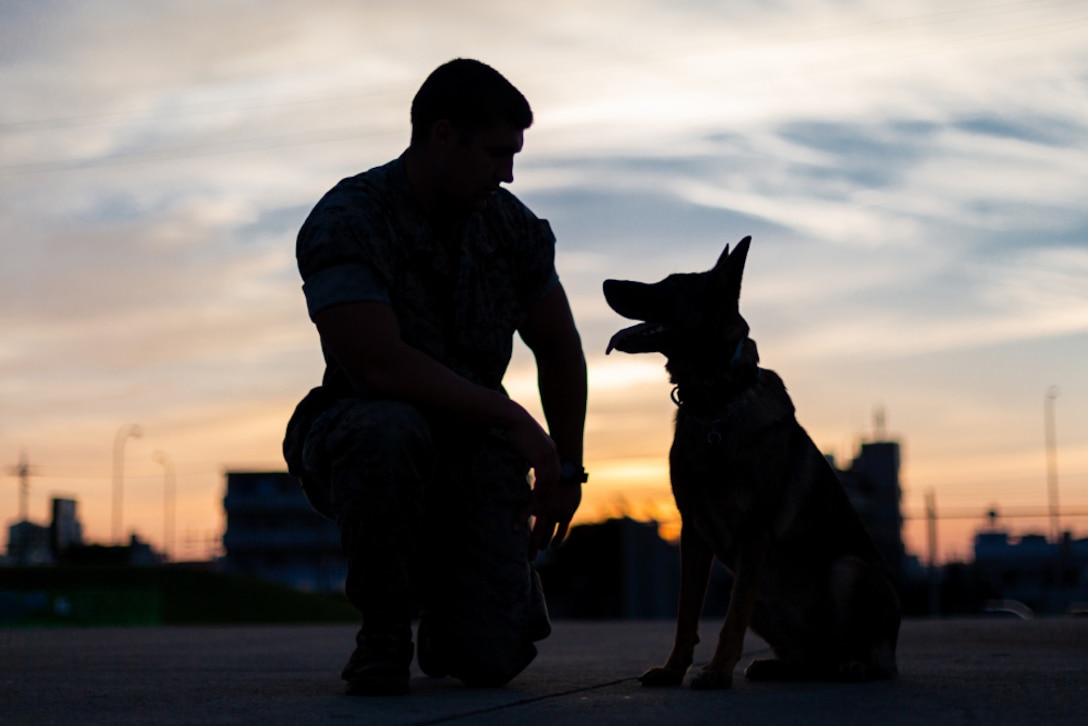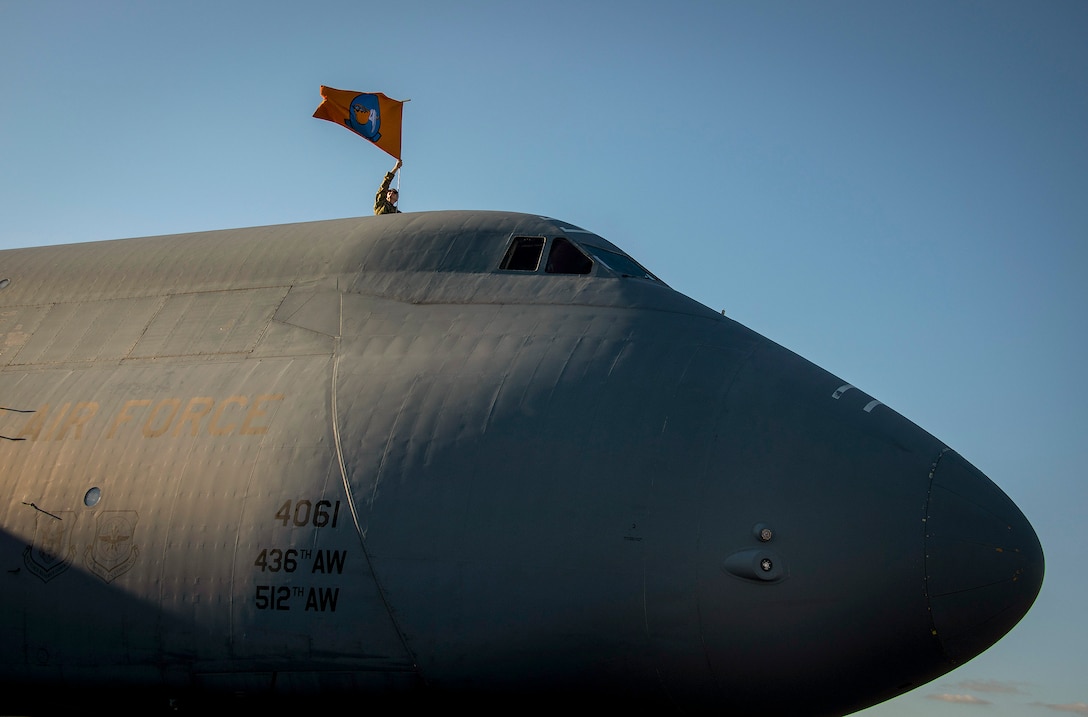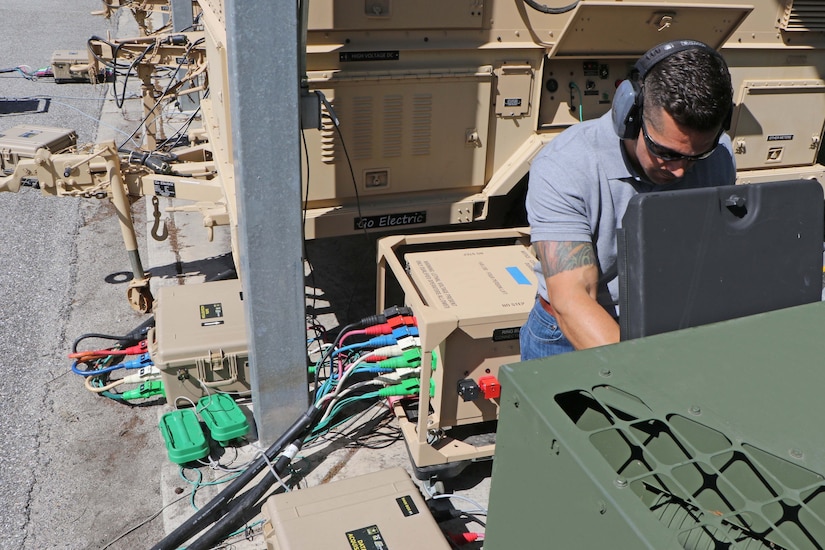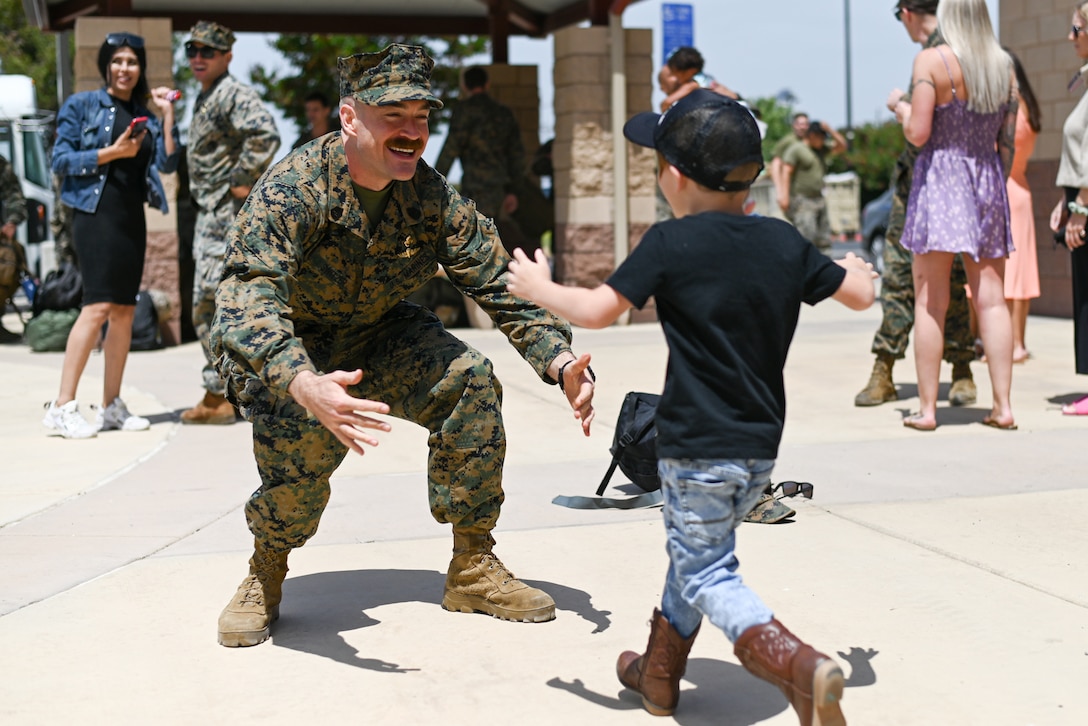May 25, 2021
PRESS SECRETARY JOHN F. KIRBY: Hey guys. Look at all those mask-less faces. Somehow I liked it better before. Well, at least on some of you.
All right, I do have a few things at the top. You may have seen our readout, but Secretary Austin spoke by phone yesterday with the Colombian Minister of National Defense Diego Molano and reaffirmed the importance of the defense relationship between our two countries.
They discussed their shared interests in deepening cooperation and strategic issues like COVID-19 and the response to the pandemic, climate change, counterterrorism and counternarcotics, intelligence sharing and ensuring respect for human rights in Colombia and through the hemisphere.
The secretary congratulated Colombia on its advances as a NATO global partner and expressed his appreciate for Colombia's contributions to international and regional security.
Earlier today Under Secretary of Defense for Policy Dr. Colin Kahl joined Secretary of the Interior Deb Haaland, National Climate Advisor Gina McCarthy and California Governor Gavin Newsom to announce an important milestone towards advancing areas for offshore wind off the northern and central coasts of California.
The Department of the Interior, in cooperation with DOD, has identified an area off the central coast of California that will support three gigawatts of offshore wind northwest of Morro Bay and the advancement of the Humboldt Call Area as a potential wind energy area off northern California.
These identified areas will help enable us to build out a significant new domestic clean energy resource over the next decade or more. The state of California is home to many important military installations as I think you guys know, as well as associated training and testing ranges including along California's central and southern coasts.
The department has worked tirelessly with the White House, the Department of Interior and the state of California to find solutions and enable offshore wind development while ensuring long-term protection for testing, training and operations critical to our military readiness.
We certainly applaud this step and we remain committed to working across the government to find creative solutions that preserve our military readiness while facilitating a sustainable climate pathway.
Lastly I think you know today's Africa Day. We join our African partners as they celebrate African unity. The U.S. remains committed to the people of Africa as we address global challenges including health, security, peace and stability, climate change and of course the efforts to improve counterterrorism capabilities.
And I think that's it. Bob, you're on the phone I guess.
Q: Yes. Thanks, John. I have a question for you on Afghanistan. General Milley has recently mentioned that securing Kabul Airport will be essential for keeping embassy presence not just for the United States but for other countries after the withdrawal is completed and that there could be an international force assembled to do that.
I wondered whether Secretary Austin agrees with this and whether he's been talking to NATO partners or others about organizing such a force.
MR. KIRBY: Bob, certainly the secretary recognizes the key hub that is the airport there in Kabul and the impact that will have not just the United States but other nations in terms of their decisions about their own diplomatic presence.
So it is certainly a factor that is being brought into discussions and deliberations inside our government about what kind of a footprint would be required to help protect the work of our diplomats.
The president has been clear that we will maintain a diplomatic presence in Afghanistan going forward. And again, as I said, that means having that airport be accessible and open. And we're just not there yet in terms of what that looks like going forward.
So, I won't speculate on what sort of force that would look like and who would comprise it. But clearly a measure of security at the Kabul Airport will be an important factor as we, again, pursue this new bilateral relationship with Afghanistan.
MR. KIRBY: Lara.
Q: I wanted to ask you whether the U.S. military or DOD as a whole will have a role in helping to rebuild Gaza, or alternatively preventing Iran from continuing to supply Hamas there.
MR. KIRBY: I know of no U.S. military role in -- on the ground in Gaza going forward, assuming you mean reconstruction of the damage. I know of no role for the U.S. military in that regard.
And as for Iran's support of Hamas and other terrorist organizations in the region, this is certainly a long-standing concern and we continue to work with our allies and partners in the region to try to limit the effects of that support. It is one of the ways in which Iran continues to prove itself a malign actor in the region.
Part of that larger effort is of course maintaining a presence in the Middle East and maintaining these partnerships throughout the region. And making sure that, and this will -- part of the global posture review that we're conducting and making sure that we are, in fact, matching appropriate resources to the strategy in that part of the world. But certainly [its] not lost on the secretary that the types of threats that Iran still poses in the region and he's going to stay laser focused on that.
Q: And sort of going along with that, will we have any goal in helping Israel respond to these more sophisticated rocket attacks that we saw in the recent conflict?
MR. KIRBY: I think the way -- way I'd put that is we take very seriously our commitments to Israel's qualitative military edge. And our commitments to them in terms of assisting with their self-defense -- we said that consistently and -- and I think I'd leave it at that. Go back to the phone here. Carla, VOA [Voice of America]?
Q: Hey, John. I was just wondering, today we heard Mitch McConnell criticizing the Afghanistan pullout. He was basically saying that giving up the high ground while the enemy is still in the battlefield isn't a strategic move. Wondering if I could get your reaction to that?
MR. KIRBY: Can you repeat his quote, please?
Q: Yes, sure. He -- he said giving up the high ground while the enemy is still in the battlefield isn't a strategic move.
MR. KIRBY: The president's been very clear that our troops accomplished the mission for which they were sent to Afghanistan. And that was to prevent that country from being used a safe haven for terrorist attacks on our homeland and there hasn't been another attack on the homeland emanating from Afghanistan since 9/11.
So, the president believes the mission has been completed and he's given us a new one. And that is to conduct a safe and orderly deliberate withdrawal from Afghanistan and that's what we're focused on right now. And so, the enemy at play here are terrorist attacks and terrorist groups that would do us harm.
And again, the terrorist threat emanating from Afghanistan has been diminished. Not extinguished by any means but diminished. And that is also why the president has directed us to make sure that we can put in place an over the horizon capability so that we can continue to protect Americans from terrorist attacks emanating from that country and we're going to do that, we're working hard on that.
Q: And real quick, John --
MR. KIRBY: Go ahead.
Q: -- a separate question, the Russian -- the Russian Military has said that they sent three nuclear-capable long-range bombers to Syria. Can we confirm that with any intelligence or any evidence of that? And has that effected our force protection?
MR. KIRBY: I cannot confirm that, that's a better question put to the Russian MOD [Minister of Defense]. And we don't talk about the force protection measures in any place around the world. I'm certainly not going to about it there in Syria.
As you know, we have a relatively small footprint there dedicated to the counter-ISIS mission and -- and they're still at that mission. But I won't discuss in general force protection, posture, and place. Okay --
Q: (Inaudible).
MR. KIRBY: Sure.
Q: Obviously, I'm not asking about the political statement that was published like a few minutes ago by the State Department by Secretary Blinken and Britain, France, Germany, and I believe Italy talking that the elections are not violent in Syria. But where this leaves us militarily in Syria?
MR. KIRBY: Nothing's changed about the mission in Syria, which is about counter-ISIS operations, in keeping with the work that the coalition has been doing since 2014. It is certainly a small presence, less than 1,000 but they are working with Syrian Democratic Forces on the ground to continue to prosecute operations against Syria and that hasn't changed.
Q: If I may ask, but what -- what do you see in the future? Are we staying there until the whole problem of Syria is over?
MR. KIRBY: It's really important to remember, Pierre, why they're there. They're there. The mission focus is about going after ISIS. They're not involved in other issues, broader issues inside Syria with respect to the civil war. They are there to fight against ISIS and it's ultimately up to the commander in chief how long they stay there.
And that's going to be, I'm sure, judged against the -- the prevalence of the threat, the seriousness of the threat. It's as we speak today still warrants their presence. Still deserves our attention and those operations and that's where we are. I simply can't speculate about the future.
Obviously, it would be optimal if we didn't have to have anybody there because there was no ISIS there because there wasn't a threat. But that's not the -- that's not the case as you and I speak today.
So, they are still dedicated to that mission and if and when that mission changes, A, that's going to be a decision by the commander in chief and, B, obviously, we'll, you know, we'll be transparent about that. But as of today, there's no change.
MR. KIRBY: Stephen Losey.
Q: Hi, thank you for -- thank you for meeting with us. The DOD used to release numbers on troops that were stationed in Afghanistan, Iraq, and Syria as part of its regular database of personnel where they were assigned to states and international locations but that practice ceased during the Trump administration.
Will the DOD resume releasing this information as part of these databases as part of the administration's commitment to transparency?
MR. KIRBY: We -- we're working through specific policy decisions on that right now, Stephen. But we have talked in broad -- in broad brushes since -- since January about troops that are deployed to Iraq and Syria and Afghanistan, heck in my answer to Pierre, I -- I just said less than 1,000 in Syria, and I think the number in Iraq is roughly 2,500 or so.
We -- we're not talking specifics in -- we had been until the president's order to withdraw from Afghanistan but we are no longer talking about specific numbers in Afghanistan for all the reasons that I've covered with you guys before and that's to maintain a measure of operational security.
Make sure that the withdrawal can continue to occur on pace and that we're not divulging more information than what is necessary. And we want to make sure that everybody gets out safely.
And so, we have definitely curtailed the delivery of some data with respect to Afghanistan for those reasons but I -- I think you all understand that.
Abraham ?
Q: John, as you know, Central Command released its update of the Afghanistan withdraw saying up to 25 percent today. I wondered if you could elaborate at all on what's going on with the withdrawal there? And could you describe -- is there any more understanding of what over the horizon means? And have any basing agreements been signed yet?
MR. KIRBY: So I'm not going to elaborate further on what the Central Command release said. I've been pretty religious about not doing that. I'm going to adhere to that line. If what you mean by -- what is over the horizon mean, I assume you mean what's that going to physically look like and how that's going to be executed. And as I think I answered to, maybe it was Bob's question, we're still working our way through that.
You saw that General McKenzie was in the region recently, and he got asked about that, and we're still putting the pieces together of exactly what an over-the-horizon counterterrorism capability is going to look like for the long term. I will add that -- and you heard the secretary say this in Brussels, we already do have some over-the-horizon counter terrorism capabilities just by dent of forces we already have in the region, and other long-range capabilities that we have outside the region.
So there's already some over-the-horizon counter terrorism capability. We know we need to think through this more deliberately and we're thoughtfully going forward as we get closer to completing the withdrawal and we're working on that. I don't have anything specific with respect to basing opportunities in the region that are ongoing diplomatic discussions about that, and I simply won't be able to get ahead of that.
Q: Real quickly, could you confirm reports that Secretary Austin has tried to call his Chinese counterpart three times and they won't pick up the phone?
MR. KIRBY: I dealt with this yesterday, Abraham. I don't really have anything more to add than what I said yesterday. We certainly desire to have a dialogue with our counterparts in Beijing, and we're still working our way through exactly what that's going to look like and how that's going to transpire.
Yes?
Q: I have a follow-up to that one
MR. KIRBY: Hey! Look at you. Congratulations.
Q: Thank you. Thank you so much.
MR. KIRBY: Well done.
Q: Thank you very much. So to follow-up on Abraham's question, the Chinese state media today claimed that they sent a friendly signal to Secretary Defense Austin, and it was never met with a response. And he later requested to meet with another leader of the Central Military Commission, which is an unprofessional and unfriendly act disregarding diplomatic protocol.
Is that true, and what is the Pentagon response to that? What is your response?
MR. KIRBY: Yeah, I don't think I want to get into a public -- I'm not going to match the public tit-for-tat here in terms of communications. We -- as I said, we desire to have a dialogue with our counterparts in Beijing, and we're still working our way through what that's going to look like and how that's going to transpire. And I think I'll just leave it there.
Hang on a second, Oren, I'll get to you. I've just -- I've got to keep doing this.
Joe ?
Going once. (Laughter.) Joe ? All right, Oren, you're up.
Q: Just wondering what the current state of affairs is between the U.S. and Palestinian Security Forces under the Palestinian authority and if those are expected to expand or increase with the opening -- the reopening of a consulate facing the Palestinians in Jerusalem?
MR. KIRBY: Yes, I'm going to take that one, Oren. I don't have a good answer for you today on that.
MR. KIRBY: Jeff Schogol?
Q: Thank you. The military uses words like retrograde and orderly withdraw to describe what's going on in Afghanistan. But given the fact that the Taliban have not been defeated, could this move be described as a retreat?
MR. KIRBY: No, Jeff. And I don't want to rehash the answer I gave earlier, so I would refer you back into the transcript of the mission that the president has given us, and the seriousness with which we are executing it.
And again, the mission in Afghanistan, the reason we were -- the reason troops were sent there -- that mission has been accomplished, we now have a new one and that is to transition to a new type -- well, to withdraw all our forces from Afghanistan, but also to transition to a new bilateral relationship with Afghanistan across the government -- diplomatically, economically, politically, and certainly from a security perspective.
Our relationship with Afghan National Defense and Security Forces will continue, but it will continue in a different way. And you heard the secretary talk about what that looks like. So that's the mission, and that's what we're focused on.
MR. KIRBY: Fadi.
Q: Thank you, John. I have a question about the F-35 deal with the UAE and that the UAE defense relationship with China. Is the department concerned about the deepening defense relationship between the UAE and China? And are you -- is that relationship weighing on, maybe, prompting a review of the F-35 deal with the UAE?
MR. KIRBY: So I'm not going to speculate publicly on the matter. I will say that we have a comprehensive security dialogue underway with the UAE where we can, and we do raise any concerns that we have. That's how we best protect U.S. national security interests across the board. And as for the F-35, I believe you've seen we've already indicated that we have not stopped or reversed the F-35 sale.
In the room? No. Meghann? Nothing?
Q: Just having an off day.
MR. KIRBY: That's unusual.
Q: (Laughter.) Taking a break.
MR. KIRBY: All right, Travis from Bloomberg.
Q: Hi, John, thanks. One of the president's executive orders from January had directed Secretary Austin to submit a climate risk assessment within 120 days. And I was just wondering if you could give status updates on that assessment, analysis, when it might be submitted to the White House and whether -- and can you tell us if any of the other agencies like EPA [Environmental Protection Agency], or NOAA [National Oceanic and Atmospheric Administration], or NASA have signed off on it? Thanks.
MR. KIRBY: Yeah -- no, thanks for the question. I don't have an update on that, so you know what? I'm going to take that one and see if I can't get you a better answer than me speculating on the status of it. It's a good question though, thanks.
Wafaa?
Q: Thank you. My question was answered.
MR. KIRBY: Paul from U.S News.
Q: Hi, John, just a follow-up to your response about China. Is the secretary trying to meet with his counterpart -- with the minister of defense, or is he also reaching out to other people -- other officials to chat including the Vice Chairman of the Chinese Central Military Commission?
MR. KIRBY: Of the diplomacy here, I mean I've seen the press reporting but I'm just not going to dive into the sausage making of how the communications are trying to be fostered. I'll just go back to what I said before, we desire a dialogue with our Chinese counterparts and we're working through what the best way is to see that come about.
MR. KIRBY: Kasim?
Q: Thank you, John. One of my questions was covered so the other question I'm asking: Russia is prepared to deliver S-400 systems to India in September. Has there been any communication toward that between the DoD [Department of Defense] and Secretary with his Indian counterpart? And is that a concern for the United States or not?
MR. KIRBY: I mean I think we already addressed this. You heard when we were already in India and we're mindful that the transaction hasn't been completed. And I don't think I'm going to go beyond that. I think it's really an issue for -- in terms of speaking to the transaction that's really something for the Russians and Indians to speak to.
Sam LaGrone, USNI.
Q: Hey, John. Just a follow-up on Carla's questions from earlier. The Russian MOD confirmed that there were three backfire bombers in -- operating out of Tardis now, may or may not have anti-ship weapons. But I mean how does the department feel about the Russians inserting what could be considered a Mediterranean capability with anti-ship weapons in the region? I think it's a -- worth an answer.
MR. KIRBY: (Inaudible) that I haven't, Sam. So I mean it -- I'm loathe to confirm a press report about another nation's military, literally as it is unfolding here. You've got me at a little bit of a disadvantage there.
But again I would say our focus in -- hang on a second, sorry. Our focus in Syria is squarely on the counter ISIS mission, that's not going to change. And as we've maintained for a long time, just as a government, involvement in what's going on is Syria, we'd want all partners, all organizations, all states that are involved to be involved in a way that leads to a peaceful outcome and a political solution to this civil war that continues to rage on and to take so many lives.
And so, I mean what we -- as a government would simply urge that all actors act in such a way inside Syria so as to not contribute more to the instability, the insecurity and rather in fact contribute to a peaceful political outcome here.
Joe Tabet, I think I'm told you got your audio thing fixed.
Q: Yes, thank you, John. I would like to ask you if you could provide us with an update on the status of military aid, U.S. military aid to Ethiopia. What's the status of mil-to-mil relationship with Ethiopia? And if you have seen any evidence that Addis Ababa is hurting U.S. interests in the Horn of Africa?
MR. KIRBY: Joe, you're going to have to let me take that question. I don't have an update on Ethiopia today. I apologize.
Okay. Anything else?
Q: I have a question, John.
MR. KIRBY: Another one.
Q: Could you speak to I guess the logic of pulling out of Afghanistan while we're trying to counter Chinese influence and China is very close to Afghanistan and it seems logical that once we pull out they might want to go in there. So is that at all a concern for the Secretary?
MR. KIRBY: I think, again, our concern is making sure we get everybody out in a safe orderly way. And that's the mission at-hand. The President's being clear that the mission for which our troops were sent has been accomplished. I wouldn't want to speculate about what nations might or might not try to influence things in Afghanistan going forward. I would give you a similar answer to the one I just gave, Sam.
And that it would be our hope that there's a peace process in Afghanistan that is Afghan led and that the Afghan people have a voice in and again a continued government that the Afghan people have a voice in that this is their country. And that international actors respect that sovereignty and respect the will of the Afghan people going forward so that they might get to a political end to this conflict and a peaceful future that we can all be proud of. And I think that's the larger hope here.

